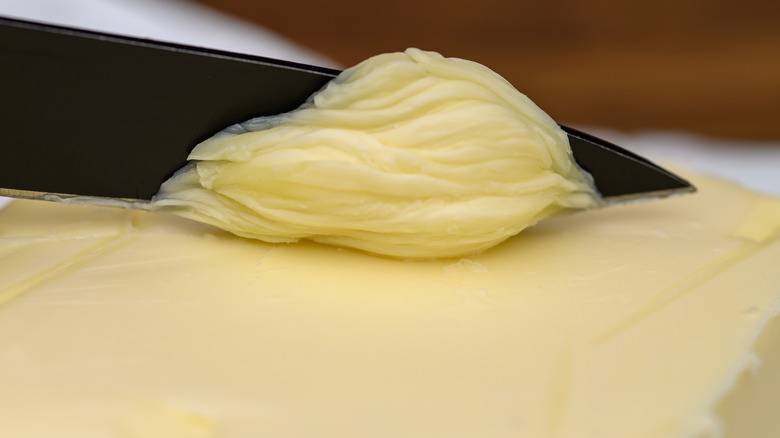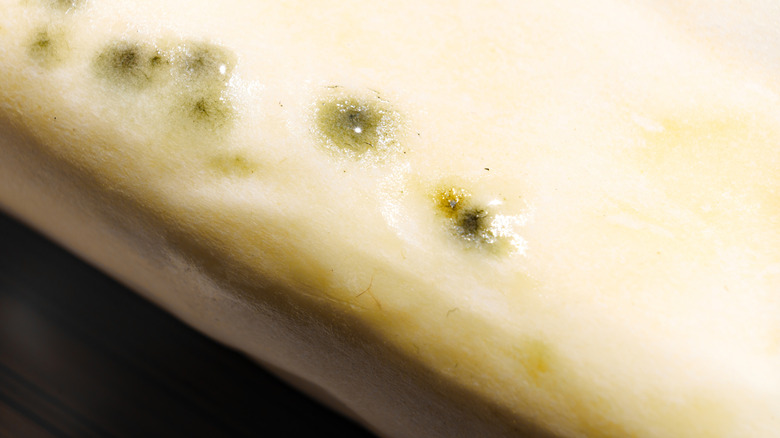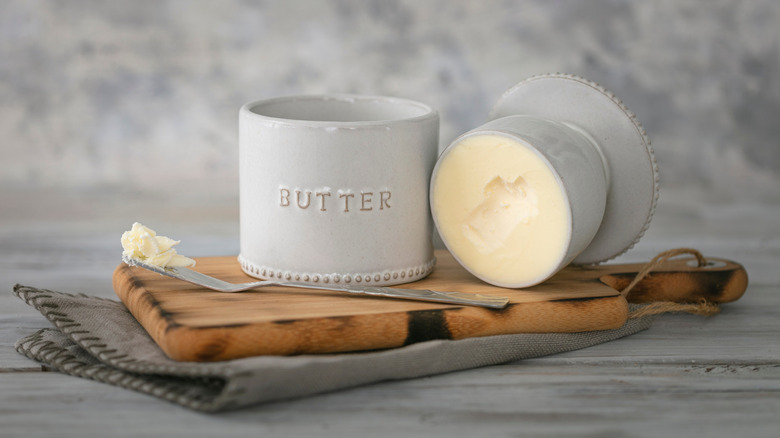If Your Butter Tastes Like This, It's Time To Throw It Out
If you've had a stick of butter hanging out in the back of your fridge for the better part of a year, it's time to throw it away. Not only because you're worth it, but because it's probably gone bad. For those who have never seen butter do this before, it might seem a little hard to tell, but there is a surefire way to check if it's time to throw it out. To tell if your butter has gone bad, start by looking at it and giving it a sniff.
You might not see mold growing on butter — though it can happen — but it can turn a darker yellow or occasionally even pink if it gets too old. Smell is the biggest giveaway, as bad butter will have a distinctly sour aroma once it starts to turn. It may even smell like other things stored in your fridge, and that funk is a strong signal to toss it.
If you somehow miss these signs and end up eating some, there will be a sour taste and potentially a gritty texture to indicate something is wrong. A tiny taste of bad butter likely won't hurt you, but don't ignore these warning signs.
What makes butter spoil?
The idea of spoiled butter might be a shocking thought to some. You may be wondering how exactly butter can go bad in the first place. This probably means you're using all your butter in a timely manner, which makes sense because there are a lot of great recipes that use tons of butter. But it could also mean that you've had some questionable butter in your lifetime.
Butter is a dairy product with a high amount of fat in it. At least 80% of butter is milkfat, to be precise. The low water content in it delays bacterial growth for longer than other dairy products, but it still has all the fatty components needed for bacteria to thrive, given enough time.
Salted butter will last longer than unsalted butter, but both still have the capacity to go rancid after a few months in the refrigerator. The amount of warmth or light the butter is exposed to can accelerate spoilage, so how you store it is important.
How to keep your butter better
Depending on how you store your butter, there are some different ways you can ensure its longevity. Air and light are the real villains, so if you keep it enclosed in a foil wrapper, butter dish, or other container, you're likely to get the most out of it. You may even want to buy a French butter bell that uses water as a barrier against air. These essential tips when using butter can ensure you never have to contend with that sour taste again.
If you intend to leave your butter out on the counter, make sure you only put out what you'll use within the next few days. Butter goes bad faster out of refrigeration, so this will prevent you from wasting any of it. In the refrigerator, you can generally trust the "best by" date, but you should keep it near the back of the fridge, where it's coldest, for the best results. Some butter may last even longer than its "best by" date, but the flavor and texture quality will decline. If you buy butter in bulk, consider keeping it in the freezer in its original wrapper for a much longer lifespan. Of course, you can always learn how to make your own homemade butter, so you'll have just the right amount fresh and ready.


